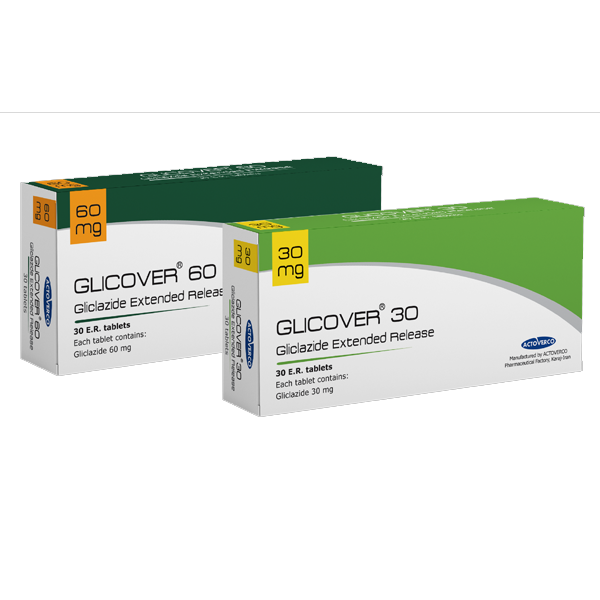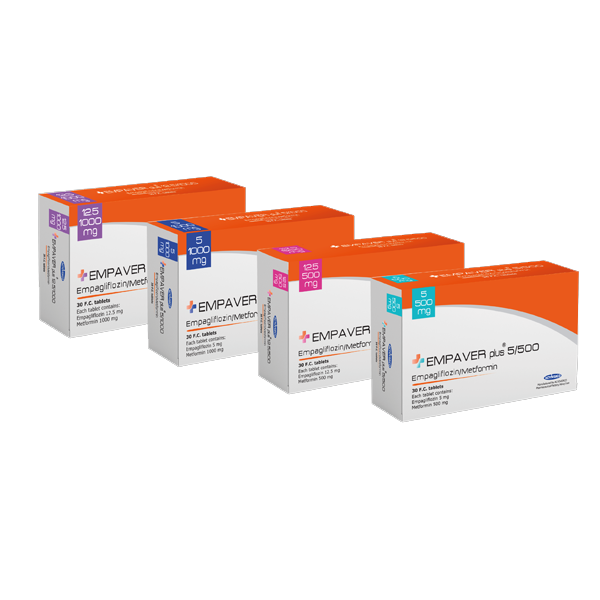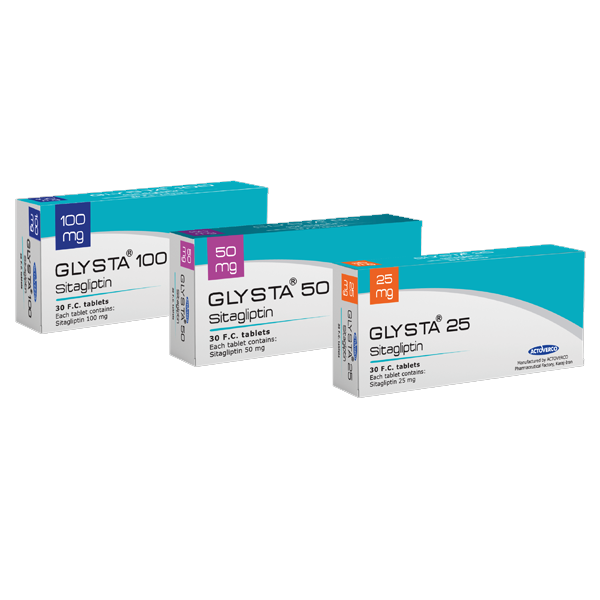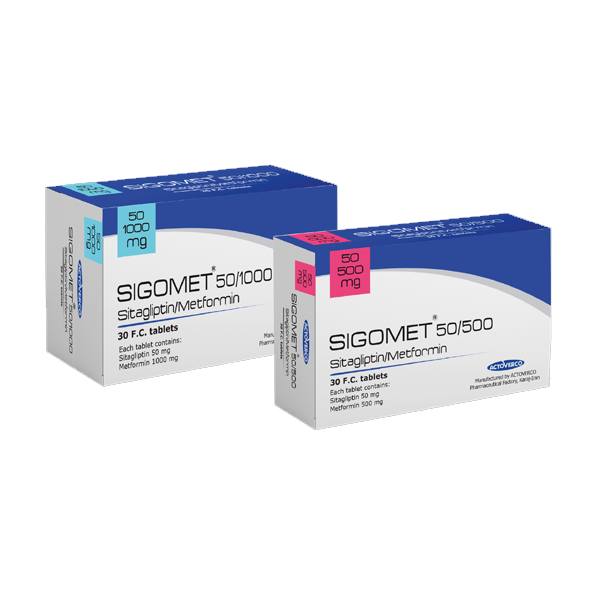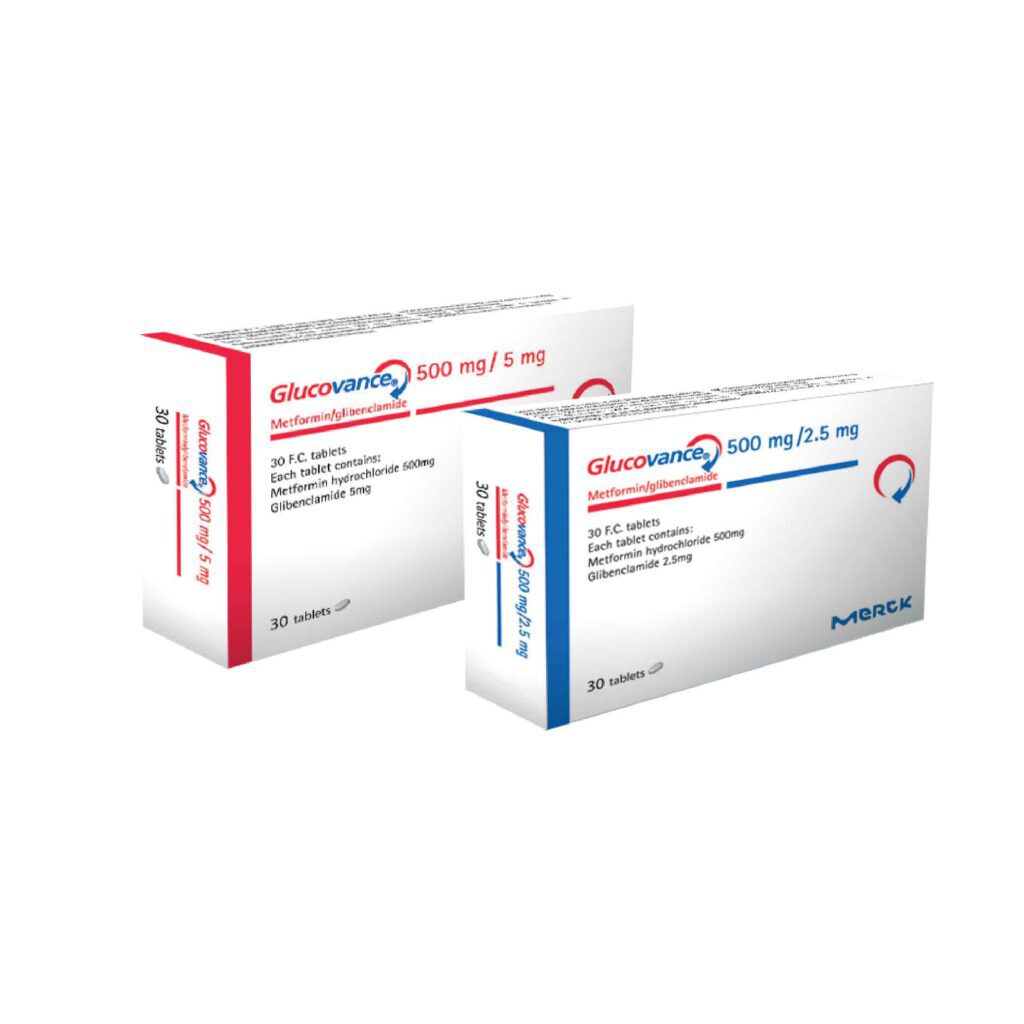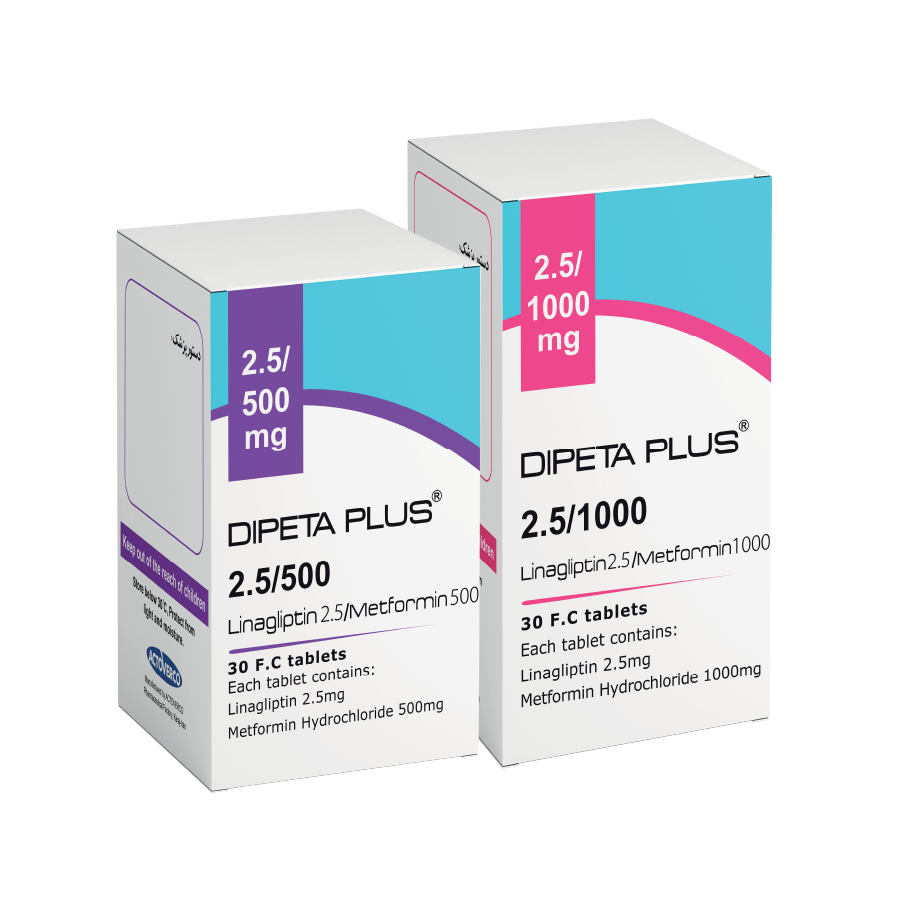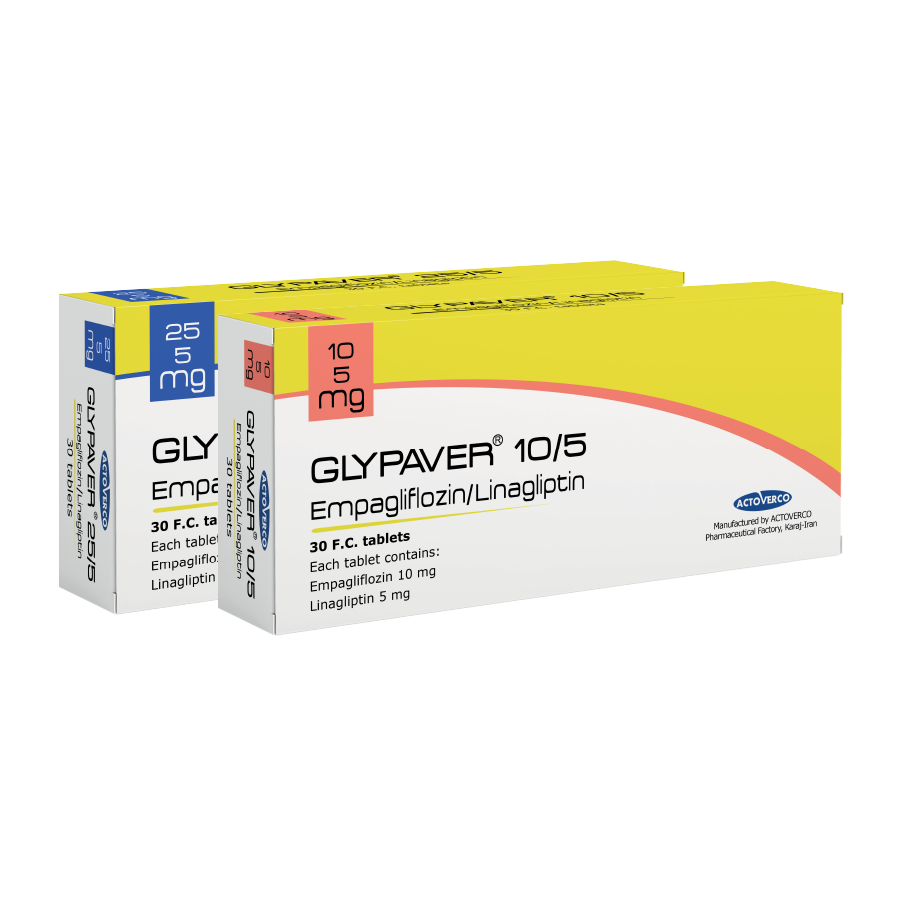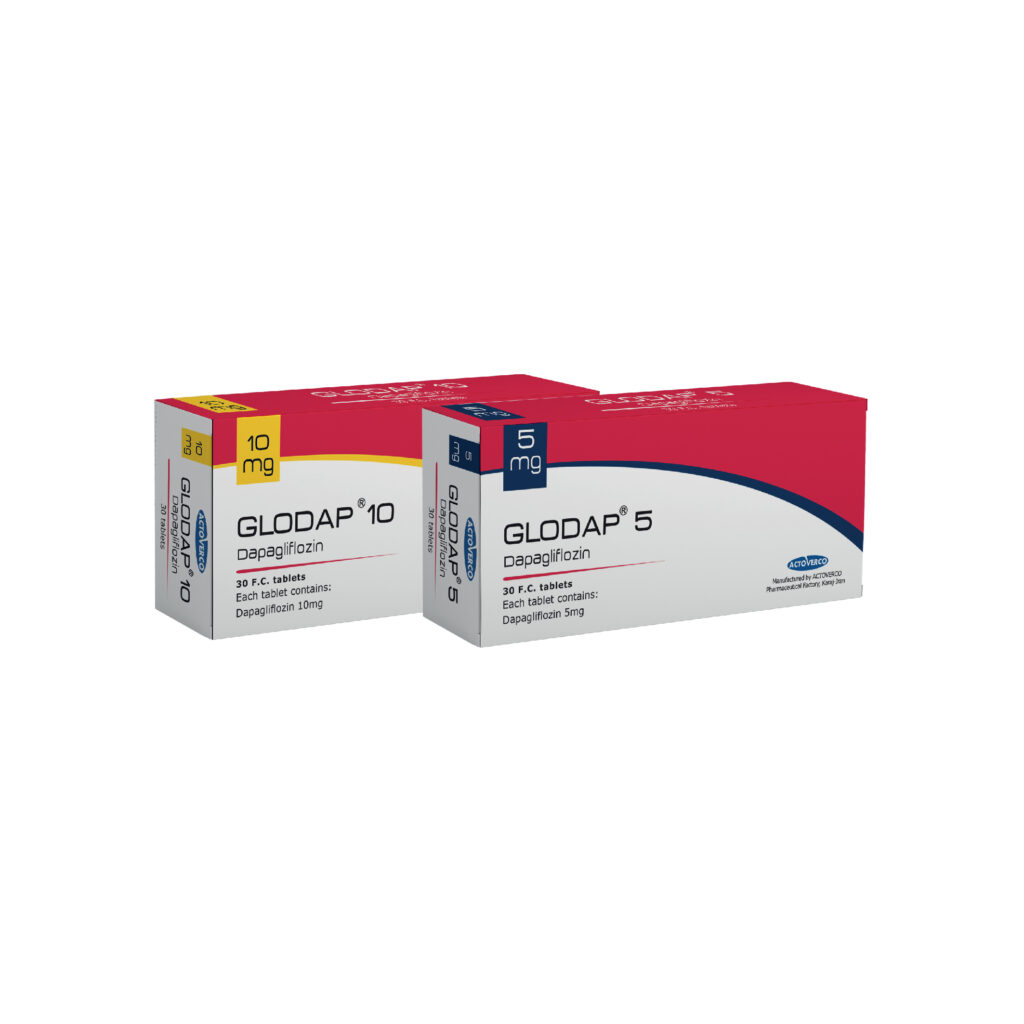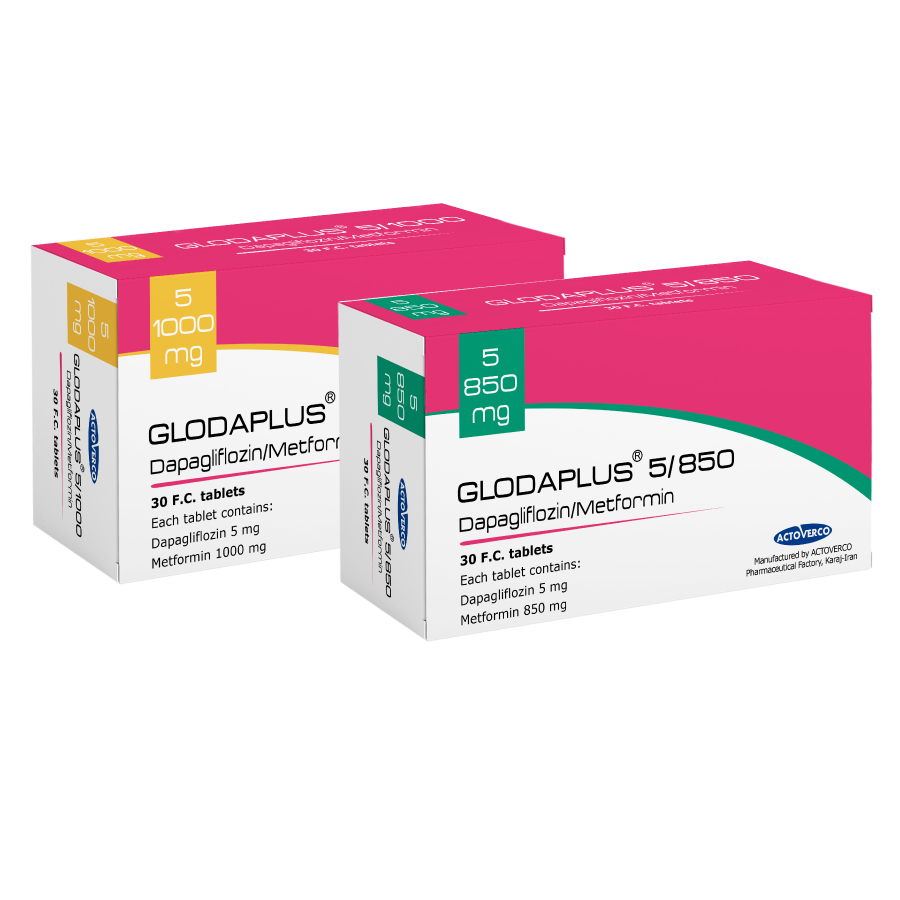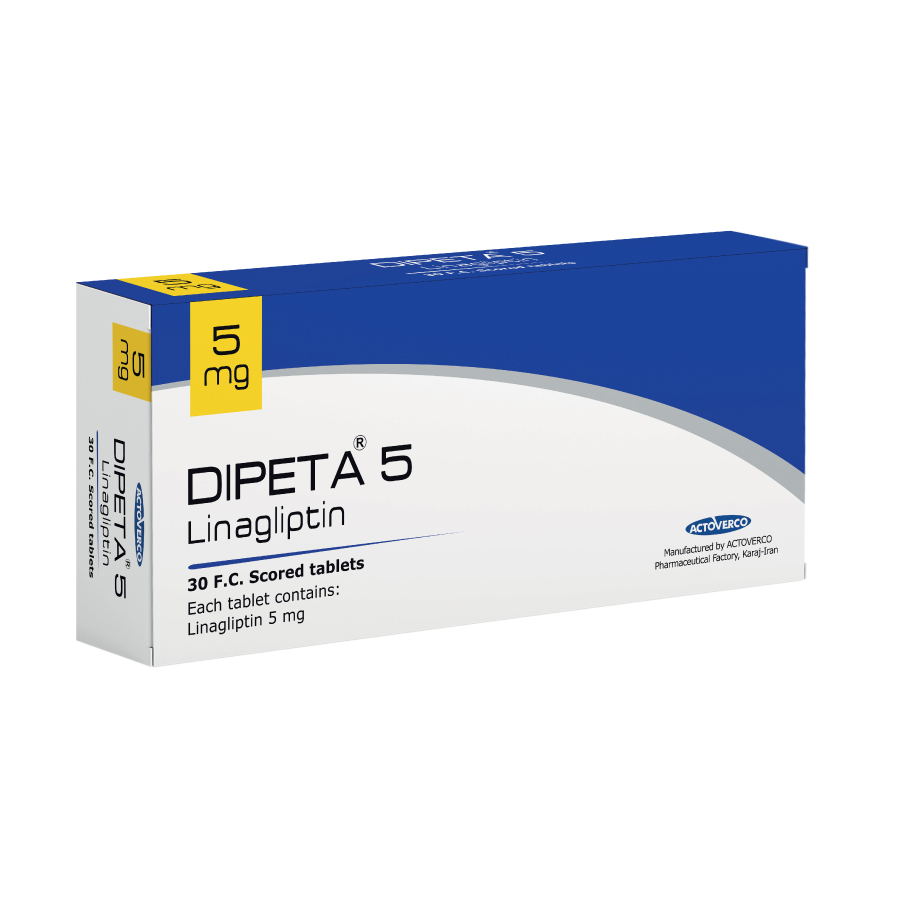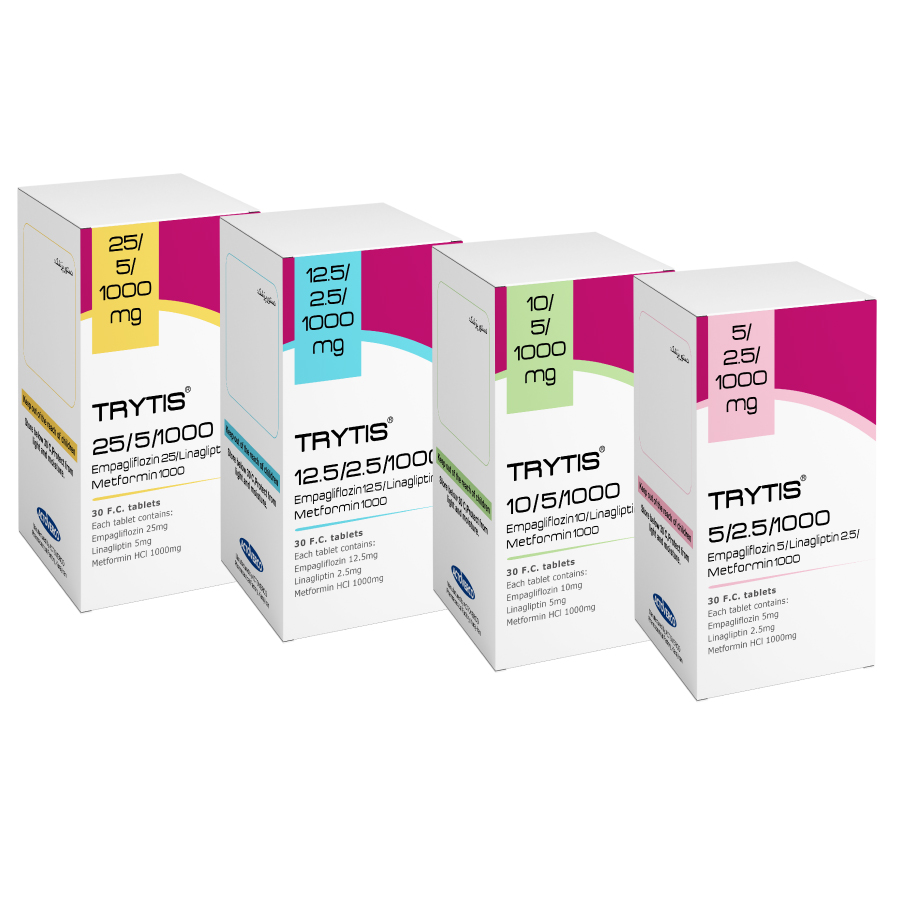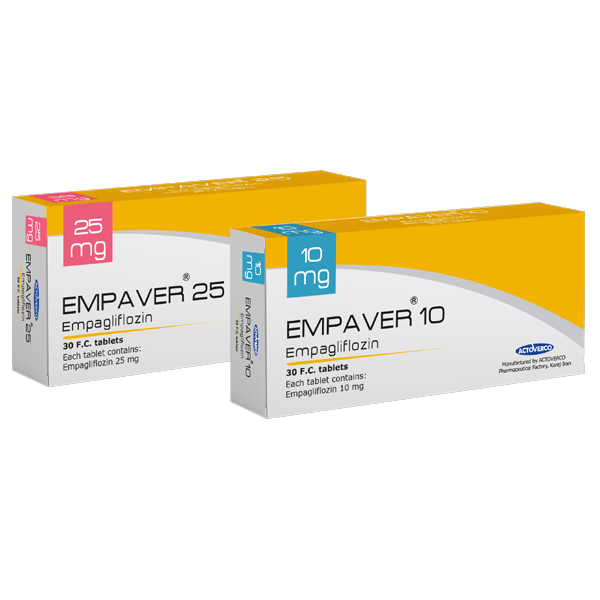Glicover (Gliclazide)
Category: Diabetes
Product Description:
Glicover is the brand name for modified release Gliclazide produced by Actoverco pharmaceuticals.
Glicover (modified release Gliclazide) is an antidiabetic, which is used for the treatment of type II diabetes mellitus.
Product Introduction
Dosage Form:
Modified release tablets 30, 60 mg
What is Glicover (Gliclazide) used for?
It is used to lower blood sugar in patients with high blood sugar (type II diabetes mellitus).
What do I need to tell my doctor BEFORE I take Glicover (Gliclazide)?
- If you are allergic to this drug; any part of this drug; or any other drugs, foods, or substances. Tell your doctor about the allergy and what signs you had.
- If you have any of these health problems: Acidic blood problem, kidney disease, liver disease, or type 1 diabetes.
- If you are under stress like when you have an infection, injury, or surgery.
- If you have a rare hereditary problem of galactose intolerance, Lapp lactase deficiency, or glucose-galactose malabsorption. Some products have lactose.
- If you are taking any of these drugs: Danazol or phenylbutazone.
- If you are pregnant or may be pregnant. Do not take this drug if you are pregnant.
- If you are breast-feeding. Do not breast-feed while you take this drug.
- If the patient is a child. Do not give this drug to a child.
- Tell your doctor and pharmacist about all of your drugs (prescription or OTC, natural products, vitamins) and health problems. You must check to make sure that it is safe for you to take this drug with all of your drugs and health problems. Do not start, stop, or change the dose of any drug without checking with your doctor.
What are some things I need to know or do while I take Glicover (Gliclazide)?
- Tell all of your health care providers that you take this drug. This includes your doctors, nurses, pharmacists, and dentists.
- Be careful if you have G6PD deficiency. Anemia may happen.
- Check your blood sugar as you have been told by your doctor.
- Have blood work checked as you have been told by the doctor. Talk with the doctor.
- Avoid driving and doing other tasks or actions that call for you to be alert until you see how this drug affects you.
- Do not drive if your blood sugar has been low. There is a greater chance of you having a crash.
- Have your eye pressure and eyesight checked as you have been told by the doctor.
- Avoid alcohol and drugs with alcohol in them.
- It may be harder to control blood sugar during times of stress such as fever, infection, injury, or surgery. A change in physical activity, exercise, or diet may also affect blood sugar.
- Low blood sugar may happen with this drug. Very low blood sugar can lead to seizures, passing out, long lasting brain damage, and sometimes death. Talk with the doctor.
- If you are 65 or older, use this drug with care. You could have more side effects.
What are some side effects of Glicover (Gliclazide)?
Even though it may be rare, some people may have very bad and sometimes deadly side effects when taking a drug. Tell your doctor or get medical help right away if you have any of the following signs or symptoms that may be related to a very bad side effect:
- Signs of an allergic reaction, like rash; hives; itching; red, swollen, blistered, or peeling skin with or without fever; wheezing; tightness in the chest or throat; trouble breathing, swallowing, or talking; unusual hoarseness; or swelling of the mouth, face, lips, tongue, or throat.
- Signs of a very bad skin reaction (Stevens-Johnson syndrome/toxic epidermal necrolysis) like red, swollen, blistered, or peeling skin (with or without fever); red or irritated eyes; or sores in the mouth, throat, nose, or eyes.
- Signs of low sodium levels like headache, trouble focusing, memory problems, feeling confused, weakness, seizures, or change in balance.
- Signs of kidney problems like unable to pass urine, change in how much urine is passed, blood in the urine, or a big weight gain.
- Chest pain or pressure.
- Shortness of breath, a big weight gain, or swelling in the arms or legs.
- Fever, chills, or sore throat; any unexplained bruising or bleeding; or feeling very tired or weak.
- Joint pain.
- Low mood (depression).
- Low blood sugar can happen. The chance may be raised when this drug is used with other drugs for diabetes. Signs may be dizziness, headache, feeling sleepy or weak, shaking, fast heartbeat, confusion, hunger, or sweating. Call your doctor right away if you have any of these signs. Follow what you have been told to do for low blood sugar. This may include taking glucose tablets, liquid glucose, or some fruit juices.
- Very bad liver problems have happened with this drug. Sometimes, these have been life-threatening. Call your doctor right away if you have signs of liver problems like dark urine, feeling tired, not hungry, upset stomach or stomach pain, light-colored stools, throwing up, or yellow skin or eyes.
- A skin reaction called bullous pemphigoid has happened with drugs like this one. Sometimes, people have had to go to the hospital. Call your doctor right away if you have blisters or if your skin starts to break down.
All drugs may cause side effects. However, many people have no side effects or only have minor side effects. Call your doctor or get medical help if any of these side effects or any other side effects bother you or do not go away:
- Stomach pain or heartburn.
- Upset stomach or throwing up.
- Diarrhea or constipation.
- Back pain.
What do I do if I miss a dose?
Skip the missed dose and go back to your normal time. Do not take 2 doses at the same time or extra doses.
How do I store and/or throw out this drug?
- Store at room temperature in a dry place. Do not store in a bathroom.
- Keep all drugs in a safe place. Keep all drugs out of the reach of children and pets.
- Throw away unused or expired drugs. Do not flush down a toilet or pour down a drain unless you are told to do so. Check with your pharmacist if you have questions about the best way to throw out drugs.

